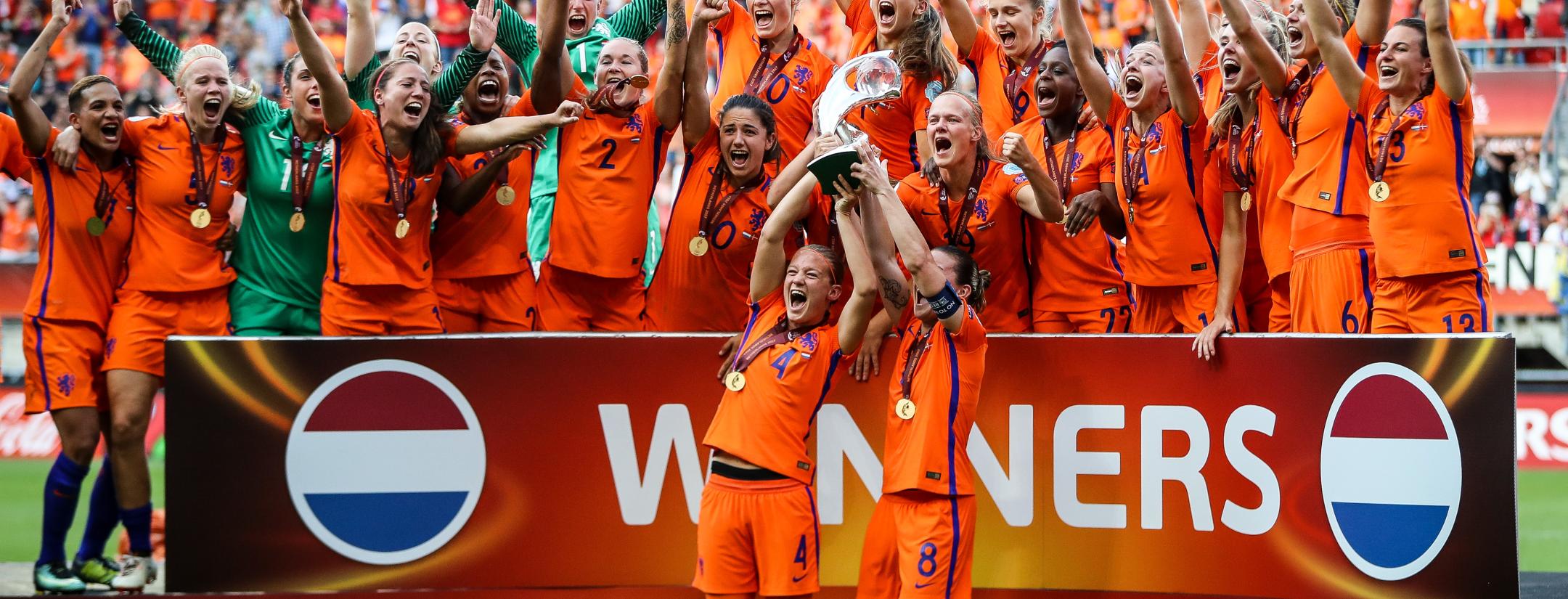There was some good news and some bad news from UEFA on Thursday. The good: European football’s governing body announced it will double the prize money available for the 2022 Women’s Euros. The bad: The Women’s Euro prize money is a miniscule fraction of the men’s Euro prize money.
UEFA said Thursday it increased the prize money for the 16-team 2022 Women’s European Championship, to be held in England next July, to €16 million ($18.8 million). That’s twice what it was for the 2017 Women’s Euros. Additionally, UEFA has made $5.28 million available to European clubs who release their players for the competition.
Prize money will be doubled for #WEURO2022!
The #UEFAExCo confirmed the 16 qualified teams will share a total €16 million, up from €8 million in 2017.
Clubs releasing players will also receive a total €4.5 million for the first time.
More details: ⤵️
— UEFA Women's EURO 2022 (@UEFAWomensEURO) September 23, 2021
UEFA said exact details of the financial distribution will be made available in the coming days.
In 2017, the Netherlands received $1.41 million for winning the Women’s Euros while runner-up Denmark received $1.17 million. The total pot was $9.39 million, a significant increase from the paltry $2.58 million in 2013.
It’s clear UEFA is on the right track by increasing prize money for women’s competitions. The problem is how far the rewards lag behind the men’s competitions.
The 2020 Euros (completed this summer) had a total purse of $435.6 million, more than 23 times the prize money for next year’s Women’s Euros, which were delayed a year because UEFA didn’t want the men’s and Women’s Euros taking place in the same year. The numbers are even worse when you consider UEFA gave $235 million to clubs who released players for the men’s Euros, $229.72 million more than the women’s clubs receive.
That the Women’s Euros participants received less than 4 percent of the men’s Euro prize money is insulting to the women who play the game but nothing new to the sport. The 2019 Women’s World Cup had a total purse of $30 million, 7.5 percent of the 2018 World Cup purse of $400 million.
It’s never good when you treat women worse than FIFA.
The sad truth is, prize money for men’s competitions are increasing at a faster rate than for women’s competitions, including World Cups and Euros. The 2020 Euros saw prize money increase by $82.19 million; even doubling the Women’s Euro prize money for 2022, it’s a smaller purse than the last men’s Euro prize money increase.
Before all you men out there clutch your pearls and argue the men’s tournaments bring in more revenue than the women’s tournaments, let me remind you of two factors. First, UEFA and FIFA are non-profit organizations, meaning they exist to grow the game, not make money. Thus, they could easily even out the prize money discrepancies for the good of the game and because it’s the right thing to do. Second, one of the major reasons the men create more revenue is because women’s soccer was banned in many areas of the world for decades, giving men’s football the focus at the expense of the women. And in the U.S., the USWNT generated more revenue than the USMNT in recent years.
If UEFA wanted to show it’s committed to women’s football (which, to be clear, it’s obvious it is not), it could even make the prize money equal for the men’s and Women’s Euros. The current total Euro prize money — combining men’s and women’s purses — is $454.4 million. Divide that in two and the men still get a healthy $227.2 million while the women get a sport-shattering $227.2 million, instantly invigorating the women’s game to unseen levels.
While UEFA is at it, even out the prize money for the men’s and women’s Champions Leagues as well. Imagine how quickly European clubs will start paying for women’s players once they realize they how profitable it is. In turn, more fans will turn out to see the world’s best players as talent and visibility improves.
And FIFA should do the same. That way U.S. Soccer can stop using FIFA as a crutch when the USWNT asks for equal pay, not to mention all the federations that desperately need that money will be encouraged to invest in women’s soccer.
I know all of this is easier said than done, but it’s really all a matter of will. If UEFA and FIFA wanted to treat men and women equally, they could easily do so. Instead we have major international tournaments with a pitiful fraction of the prize money of the men’s competitions.




